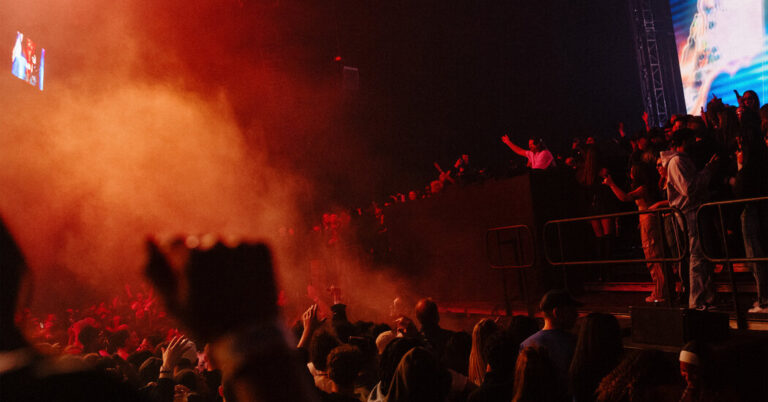
Later this summer, Bowery Presents will throw one of New York’s biggest concerts of the year: Keinemusik, with an estimated 40,000 planned to attend the event at Flushing Meadows Corona Park. American music festival lineups have become increasingly dominated by dance music acts, and dance music festivals are pulling record crowds: Electric Daisy Carnival in Las Vegas attracted 525,000 attendees last year over three days. (For context, Coachella 2024 drew approximately 200,000 people over two weekends.)
The international market for dance music is (as usual) even bigger. Large-scale dance music festivals are becoming destinations, like Albania’s UNUM Festival, or in India, where the Amsterdam-based festival DGTL has started editions in Mumbai and Bengaluru. On the smaller end of things, hyper-niche electronic music festivals are popping up and attracting significantly more interest, like New Jersey’s Dripping. Or upstate New York’s Sustain-Release, now in its 11th year and more mythological than ever: Admission is granted exclusively to those with memberships, which are by referral only.
And if the veritable mecca of dance music, Ibiza, is any measure, the Spanish island has shattered tourism spending records over the past few years, enjoying a 30.78 percent increase in tourist spending from 2019 to 2024, a year in which tourists spent a record 3.964 billion euros (or $4.47 billion), per the Balearic Institute of Statistics. This month, the largest nightclub in the island’s history, [UNVRS], pronounced “universe,” is set to open. It announced itself with a trailer featuring Will Smith, and when it opens, will have a capacity of 15,000, making it the world’s largest nightclub, a venue on par with arenas.
DANCE MUSIC’S LATEST MOMENT isn’t entirely a party. Longtime practitioners and devotees fret that the ineffable qualities that make nightlife great — and the spaces and D.J.s who made it that way — are under threat as it spirals upward and outward.
Artists and venue owners have argued that festivals siphon money from nightclubs, which also stand to lose regular business during global economic downturns when disposable income is tight. That’s to say nothing of increasingly competitive commercial real estate markets in cities where nightlife thrives, or the shaky state of Ibiza’s civic fabric, as essential workers are priced out of the island. A generation drinking less and spending more time online isn’t helping.
The financial interests around the music business are changing, too. KKR, a large global private equity firm, now owns some of the world’s largest music festivals via its portfolio company Superstruct, in addition to Boiler Room. Some of its events have not gone over well with the largely progressive dance music community.




